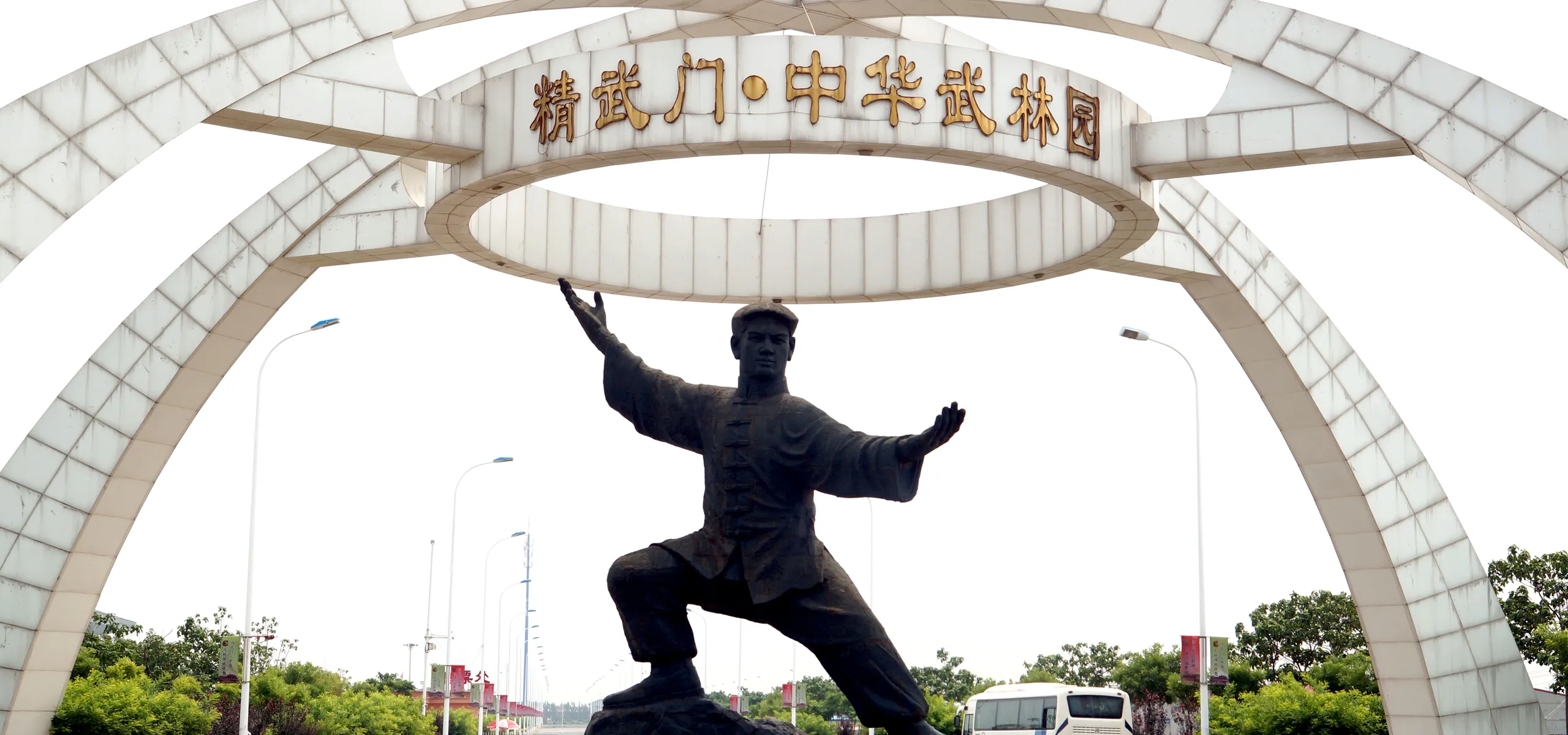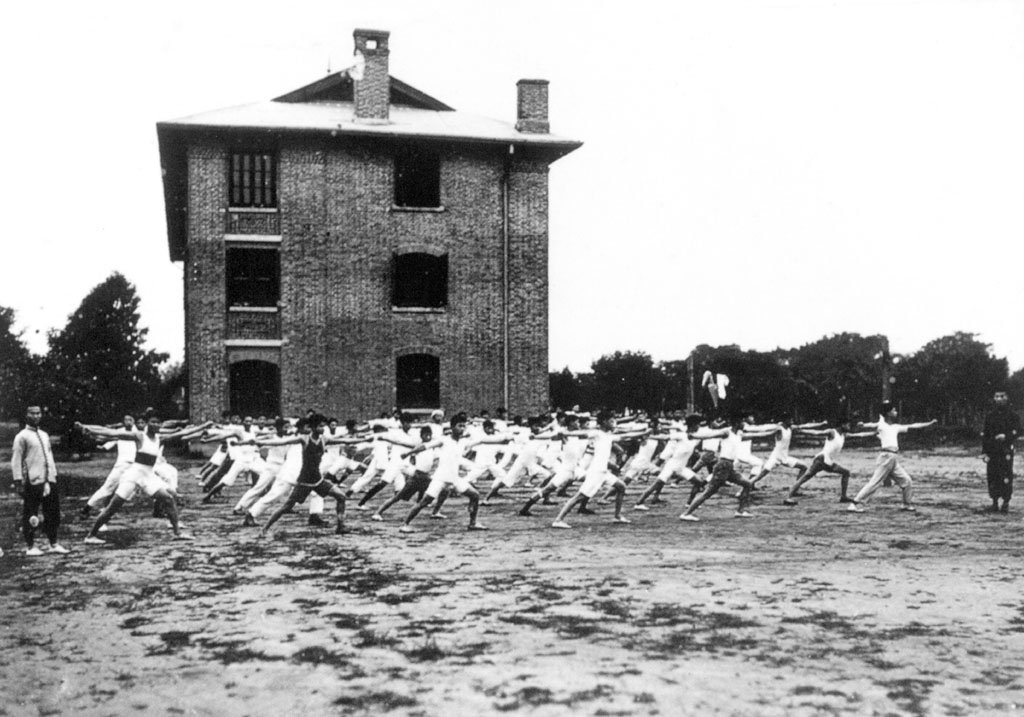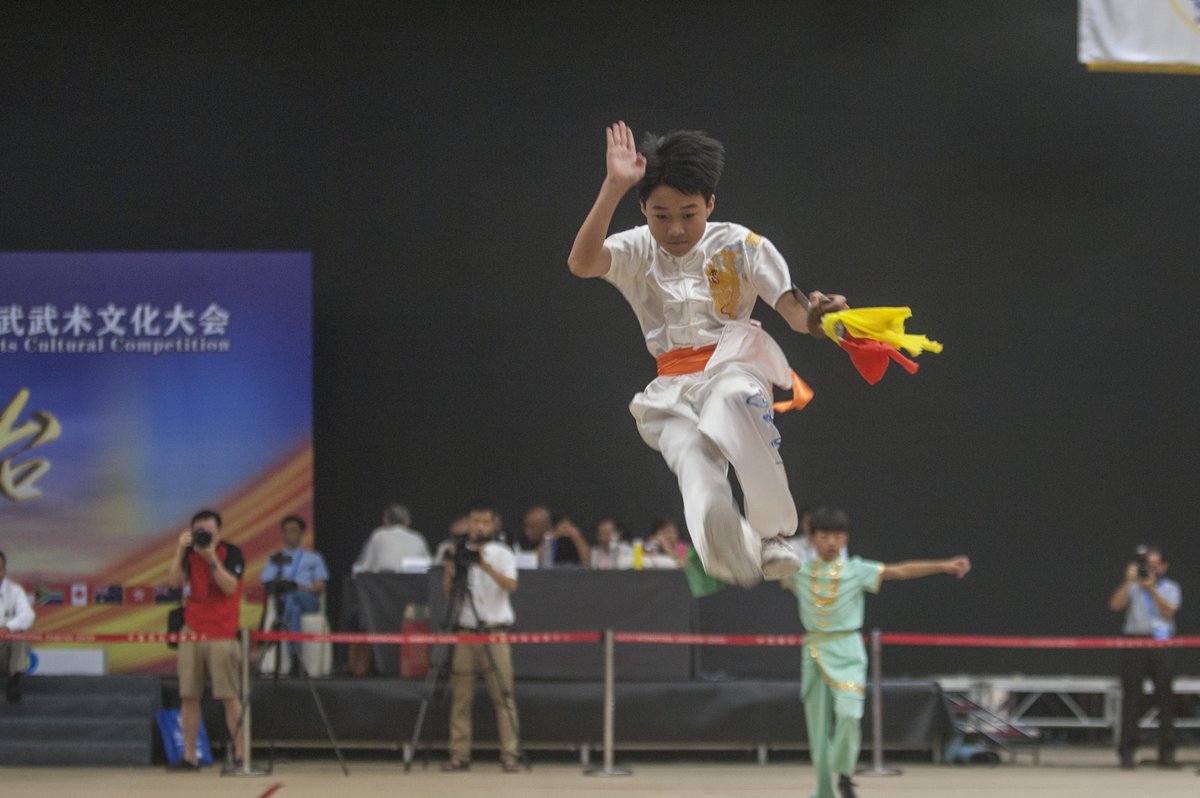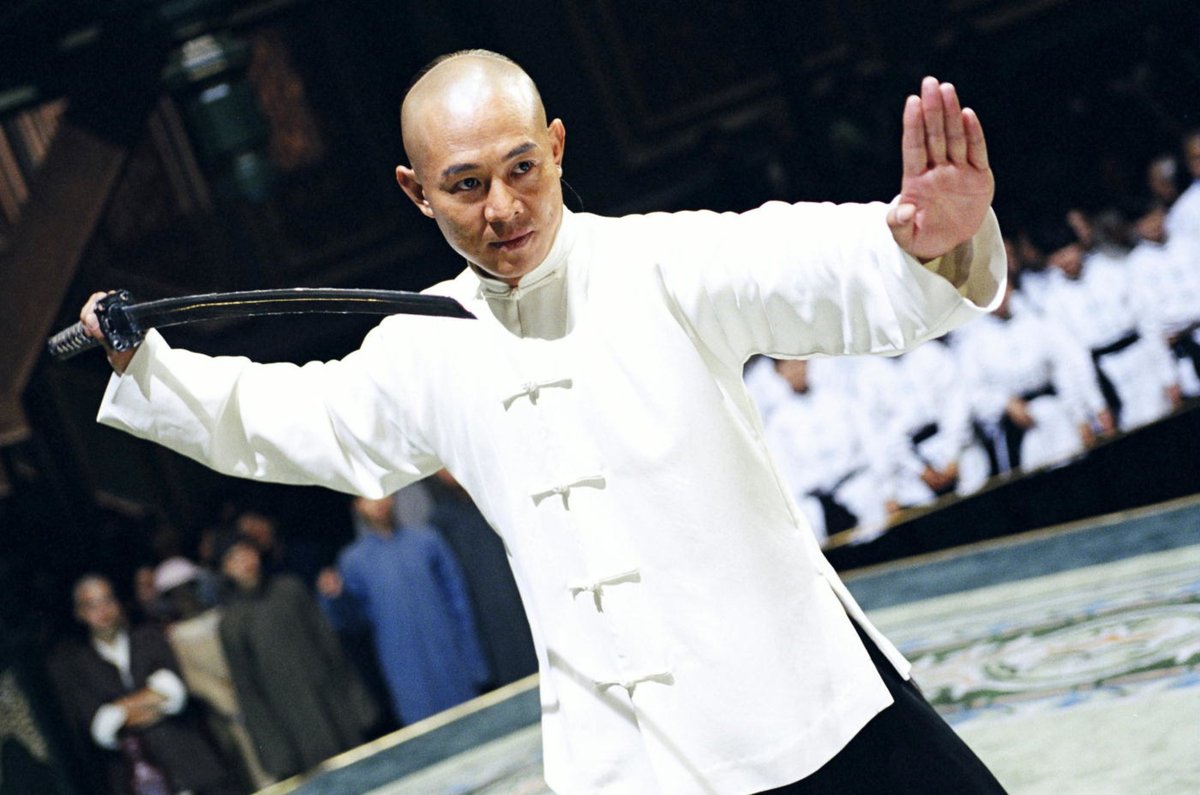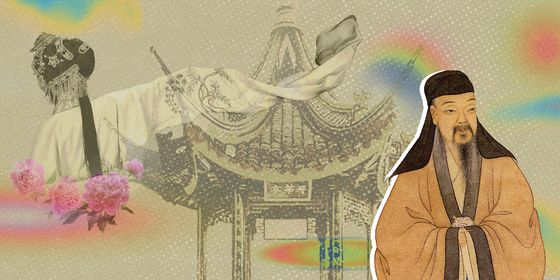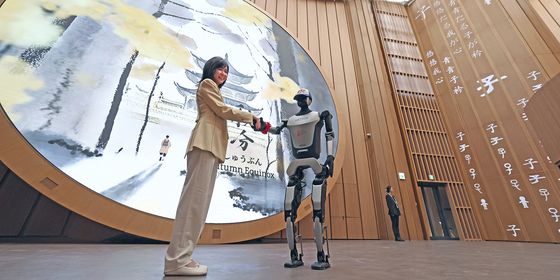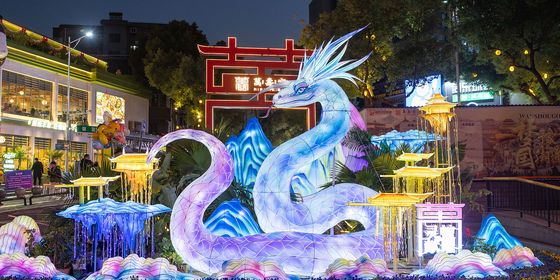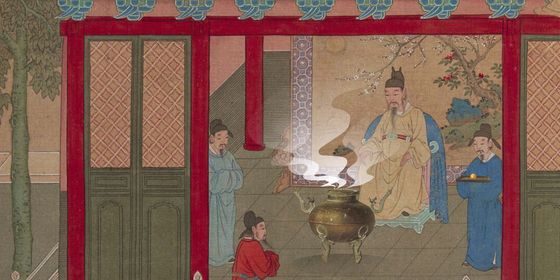Because of the popularity of films based on the martial artist’s life story, few can really distinguish the actual history of Huo Yuanjia from fictionalized adaptations
In the world of Chinese martial arts, Huo Yuanjia (霍元甲) is a legendary name. As the founder of China’s most influential martial arts organization Jingwu School, Huo is remembered as both a patriot who fought for the nation’s dignity and a celebrity with strong connections to political groups. While many can recount anecdotes about him, few can accurately distinguish between the historical facts and the fictionalized accounts derived from his life.
Despite being born into a family of martial arts practitioners in Xiaonanhe Village, Tianjin, Huo’s father was reluctant to teach him the family legacy as he was physically weak when he was younger. His father was concerned that Huo’s frailty might tarnish the family’s reputation. However, after showing his dedication through hard work, Huo managed to convince his father to teach him the Huo family’s style of martial arts. In 1896, at the age of 28, he went to Tianjin and made a living there by working as a porter.
Under the unequal Treaty of Beijing signed after the Second Opium War in 1860, Tianjin was designated as an open port to foreign trade, allowing merchants to trade freely. As large numbers of foreigners flocked to the city to make their fortune, conflicts between them and the Chinese locals began to escalate. In 1901, a Russian wrestler issued a challenge to Chinese martial artists in Tianjin, claiming to be the strongest man on Earth, with an Englishman ranking as No. 2 and a German as No. 3. Huo took the challenge as an insult to the Chinese people and openly announced his decision to fight back. However, he didn’t get to showcase his skills before the Russian gave up, and issued a public apology in the local newspaper. For Chinese people who had witnessed their country fall under the control of foreign colonizers after a series of wars and unequal treaties for over half a century, such an apology represented a rare and significant victory. Huo rose to fame after the incident and embarked on his journey to become one of the most recognizable names in martial arts.
Seven years later, in 1909, Huo received a message from the Chinese United League, a secret society founded by Sun Yat-sen, Song Jiaoren (宋教仁), and other revolutionaries who later became leaders of Kuomintang. They were planning to save the country by overthrowing the Qing government and wanted Huo to answer to a challenge initiated by Irish boxer Hercules O’Brien. O’Brien had been performing martial skills at the Apollo Theatre in Shanghai for several nights and challenged the Chinese martial artists to fight with scorn during his most recent showcase. Local media reported on the incident, leading to grave public outcry. To defend the national dignity, representatives of the Chinese United League in Shanghai approached Huo Yuanjia and invited him to the city.
Huo accepted the invitation. After he arrived in Shanghai, Huo quickly published his response to O’Brien on Eastern Times, saying: “People call us Chinese ‘sick men of East Asia.’ I am a sick man from China who loves to compete with all the healthy people across the world.” His statement elated the entire Shanghai, and O’Brien opted to leave town before the fight took place, making Huo a patriotic hero again.
Huo’s influence gave some inspiration to representatives of the Chinese United League in Shanghai. In the same year, members of the group, including Chen Qimei (陈其美), Nong Jinsun (农劲荪), and Chen Kung-che (陈公哲), co-founded a martial art organization called “Jingwu Physical Training Center (精武体操会)” with Huo in Shanghai’s Zhabei district. It was renamed to Jingwu Athletic Association (精武体育会) in the following year. According to 50 Years of Jingwu Association, a memoir written by Chen Kung-che, they decided to change the name because they wanted to emphasize more of the sports aspect of the association, since people at that time tended to believe these social groups were a cover for revolutionary organizations, and they wanted to avoid arousing the Qing government’s suspicion.
However, Jingwu Association has always been more than just a non-governmental sports organization since the very beginning. In addition to martial arts, the school also taught military tactics in preparation for the revolution. According to The Revolutionary History of Mr. Chen Yingshi (《陈英士先生革命小史》), written by Sun Yat-Sen’s secretary Shao Yuanchong, Huo was more of a figurehead of the organization, while the Chinese United League was the background player. In 1915, Sun Yat-sen, founder of the Republic of China, attended the third annual event held by Jingwu Association and gave a speech to the attendees. In 1919, when Sun visited Jingwu Center again, he sent a plague with the engraving “martial spirit (尚武精神).”
Despite its political ties, the organization did in fact make great contributions to the development and promotion of Chinese martial arts. Before it was founded, Chinese martial arts were rarely taught to people outside the master’s own sect or family clan. Huo felt it was time to change. He realized that only when all different schools began to communicate and even integrate, can Chinese martial arts be carried forward. So, Huo invited many prominent martial artists across the country to teach at the center, including Chen Zizheng (陈子正), master of the Eagle Claw style known for its gripping techniques, and Luo Guangyu (罗光玉), master of the aggressive Seven Star Praying Mantis style. Practitioners at the center could get access to different styles of martial arts from different artists no matter what direction they eventually chose.
The openness and inclusion made Jingwu Center a holy ground for martial arts lovers. In the following decade, the organization quickly developed. By 1920, it had amassed over 1,100 members.
Unfortunately, Huo didn’t live to see his organization flourish. In 1910, just months after Jingwu Center was founded, Huo died at the age of 42. The reason for his death remains a mystery to this day.
According to Chen Kung-che’s memoir, Huo was introduced to a Japanese doctor to treat his existing lung disease. Huo’s health quickly deteriorated after taking the medicine prescribed by the doctor. Huo was then sent to the Shanghai Red Cross Hospital, where he died two weeks later. People soon started to suspect that Huo was poisoned by the Japanese doctor, though no concrete evidence could prove the theory. In Chivalrous Heros in Modern Times (《近代侠义英雄传》), a 1923 novel featuring Huo Yuanjia’s life story, the story ends with Huo being murdered by the Japanese doctor. Given the growing anti-Japanese sentiment following Japan’s invasion of China, more and more people chose to believe this version of the story. In 1989, when Huo’s grave was relocated, his excavated remains revealed black spots on his bones, suggesting possible poisoning. However, as these spots could also result from the side effects of certain medicines, no definitive conclusion was reached. Huo’s death was a heavy blow, but it didn’t hinder the development of the Jingwu Center. In 1916, Chen Kung-che donated two mu (around 1333 square meters) of his private land on today’s Huimin Road in Shanghai to serve as the new location for the center after the previous site was destroyed in a typhoon the year before.
In the following years, the association kept expanding and established branches in Hankou, Guangzhou, Shantou, Xiamen, Foshan, and Hong Kong. In 1920, the Jingwu Athletic Association sent five representatives known as the ‘Five Special Envoys’—Chen Kung-che, Li Huisheng (黎惠生), Luo Xiao’ao (罗啸璈), Chen Shichao (陈士超), and Ye Shutian (叶书田)—to tour Southeast Asia and promote Chinese martial arts. They brought Jingwu’s publications and movies to many Southeast Asian countries including Vietnam, Malaysia, and Singapore. By 1923, they had opened schools all over Southeast Asia.
During the Anti-Japanese War, many branches of the association ceased operation. But members of the group left their names in history. For example, Fu Baolu (符保卢), who used to be a pole-vaulter and had taken part in the 1936 Olympic Games, joined the air force during the war and died in an accident during training.
In 1966, during the Cultural Revolution, activities at Shanghai’s Jingwu Athletic Association were disrupted, as the organization, like many other sports and entertainment groups, was considered to be associated with “old ideas,” which were opposed by the movement. Those restrictions were lifted in 1976, and the Jingwu Athletic Association resumed operation.
In the 1970s, the influence of the Jingwu Athletic Association extended into the world of film. The popular 1972 film Fist of Fury starring Bruce Lee was an adaptation of Jingwu’s history. In the movie, screenwriter Ni Kuang created a fictional character named Chen Zhen as Huo’s apprentice. In the story, after Huo is murdered by the Japanese, Chen manages to defeat arrogant Japanese martial artists and avenge Huo’s death. The success of the movie made Chen Zhen, Huo Yuanjia, and the Jingwu School icons of Chinese pop culture. More Chinese people have since started to become familiar with the term “精武门,” literally “Jingwu School”.
From then on, many films and dramas featuring Huo’s life and the Jingwu Athletic Association emerged, including The Legendary Fok (1981), Legend of a Fighter (1982), Huo Yuanjia (2001), and Fearless (2006). One of China’s most influential pop singers Jay Chou also released a song titled “Huo Yuanjia” as the theme song of the 2006 movie, which enjoyed great popularity among young people. In all these works, Huo is described as a hero who has strong patriotic feelings and fights for the dignity of the nation. Fantastic actions, heroic roles, exciting plots, and infectious patriotism—all these elements contributed to these films’ enduring appeal, and Huo Yuanjia’s image on the screen started to gradually overshadow the real person in history.
Today, the Shanghai Jingwu Athletic Association is registered as a municipal non-governmental sports organization, mainly working to promote martial arts on campus, organize cultural exchange activities, provide martial arts training, and conduct historical research.





